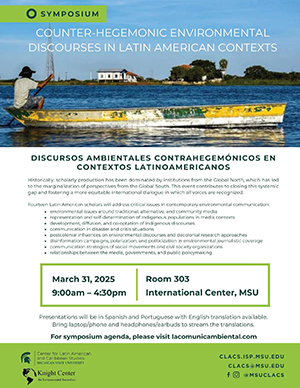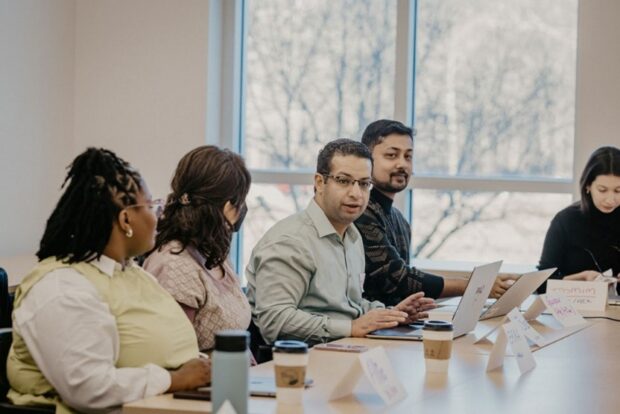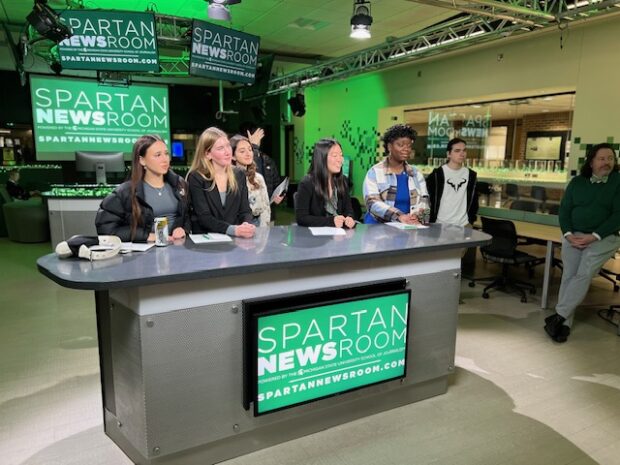BY ANNA BARNES, SHEALYN PAULIS

Symposium participants
From Mon. March 31, to Wed. April 2, 2025, Michigan State University’s Knight Center for Environmental Journalism and the Center for Latin American and Caribbean Studies (CLACS) hosted the Counter-Hegemonic Environmental Discourses in Latin American Contexts Symposium and Workshop. The event featured a full day of panels where visiting Latin American scholars representing eight countries presented their research on environmental communication.
Latin American perspectives are often marginalized from international academic spaces. Systematic barriers prevent researchers from being included in global conversations, such as language, translation difficulties and emphasis on work produced in the Global North. Additionally, the availability of funding is a stark contrast for academics in the Global South compared to their northern counterparts. These barriers have made scientific inclusion and cooperation between the Global North and South challenging.
The event highlighted research and scholarship from Latin America, with discussions centered on the communication of environmental health issues, sustainability, environmental journalism, and hegemonic perspectives. It also explored the audiences and sources of environmental communication, with particular attention to Indigenous and marginalized communities. Continue reading

 From Monday, March 31, to Wednesday, April 2, Michigan State University’s Center for Latin American and Caribbean Studies (CLACS) and the Knight Center for Environmental Journalism will host the Counter-Hegemonic Environmental Discourses in Latin American Contexts Symposium and Workshop. The event invites researchers, staff and students to join as 14 scholars representing eight Latin American countries discuss their research in environmental communication.
From Monday, March 31, to Wednesday, April 2, Michigan State University’s Center for Latin American and Caribbean Studies (CLACS) and the Knight Center for Environmental Journalism will host the Counter-Hegemonic Environmental Discourses in Latin American Contexts Symposium and Workshop. The event invites researchers, staff and students to join as 14 scholars representing eight Latin American countries discuss their research in environmental communication.
